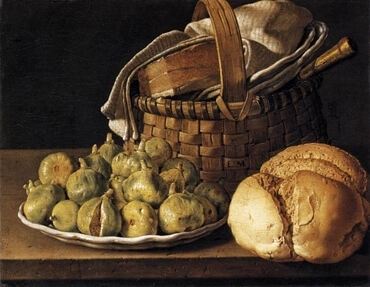12
เถาองุ่นก็เหี่ยว ต้นมะเดื่อก็แห้งไป ต้นทับทิม ต้นอินทผลัม และต้นแอบเปิ้ล ต้นไม้ในนาทั้งสิ้นก็เหี่ยวไป เพราะความยินดีก็เหี่ยวไปจากบุตรทั้งหลายของมนุษย์
12
เถาองุ่นก็เหี่ยว ต้นมะเดื่อก็แห้งไป ต้นทับทิม ต้นอินทผลัม และต้นแอบเปิ้ล ต้นไม้ในนาทั้งสิ้นก็เหี่ยวไป เพราะความยินดีก็เหี่ยวไปจากบุตรทั้งหลายของมนุษย์
Many thanks to Philip Pope for the permission to use his 2003 translation of the English King James Version Bible into Thai. Here's a link to the mission's website: www.thaipope.org

In the Bible, a fig tree represents the "natural", outward life of a person in the world, and the thoughts and feelings directly connected it. Our natural selves have a tendency to be drawn toward evil, seduced by bodily pleasures and engaged in merely factual thinking. If our natural level is connected to a more elevated interior state, though, it can be engaged in doing the work of being good and gathering the knowledge that can be built up into truth. This "natural good" is represented by the figs themselves, the fruit borne by the tree. It's interesting how there is a hierarchy among the most common fruits in the Bible. Olives represent the most exalted human state, which is called "celestial" and is driven by love of the Lord. Grapes represent the next level, which is called "spiritual" and is led by truth from the Lord and love of the neighbor. Figs represent the lowest level, the natural. This makes sense if you think about it. Olives produce olive oil, which is not only food but can also be burned, and fire represents love. Grapes produce wine, which was prized in ancient times and which represents spiritual truth. Figs are food, giving the body energy to work.